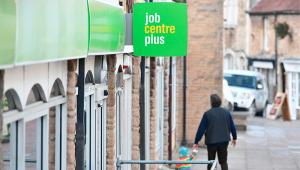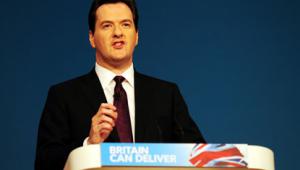07 October 2005
A future Conservative government should match Margaret Thatcher's 'enterprise revolution' in industry, with a 'social enterprise revolution' in the public services, shadow health secretary Andrew Lansley told the party conference on October 4.
Lansley said: 'It is now crystal clear that Labour's top-down target-driven approach has failed and their half-baked plans for choice and the use of the private sector are divisive and confused.'
What was needed, he said, was a genuinely free market in which any private sector company could compete directly with the NHS.
Talking to Public Finance after his speech, Lansley said the government could not be trusted to introduce genuine competition into the NHS. He said: 'They talk about competition, but Patricia Hewitt was last week parading the fact that her strategy was to nationalise the independent sector.'
'They're going to buy the contracts with the private sector, bring them into the NHS, and with many of those block contracts, the way they're structured would mean that they would in effect be able to turn into NHS-owned institutions after five years.'
Lansley said that the only way to ensure genuine competition in health care would be to expand the role of the foundation trust watchdog Monitor, and allow it to police pro-competition market rules within the NHS.
Lansley was also critical of what he termed the 'bureaucratic confusion' of current NHS restructuring, especially around the reconfiguration of primary care trusts, criticising the move to divest PCTs of their role in health provision.
'I see no reason to take provision away from them,' he said. 'They wouldn't be providing a whole range of services& but sometimes you need somebody whose job it is to pump prime the new investment in services, so the GPs have somebody to go to.'
Lansley said that the PCTs' job was also to be the provider of last resort. 'Somebody has to take that responsibility,' he added. 'Nowhere in the whole structure of NHS reform has the government begun to address the question of who carries the universal service obligation inside the NHS.'
Diverse services 'may be result of' decentralisation
Localists needed to be 'grown-up' about decentralisation and admit it might well mean an increase in the 'postcode lottery' in public services, shadow local government secretary Caroline Spelman told a conference fringe meeting.
'If we decentralise, we have to accept that we will also get diversity& and there may be a variation in standards,' Spelman said. 'But I believe that's what will drive up standards eventually.
'It may be that in the interim, people will call postcode lottery. But that's something I think you have to tough out as a government that is totally committed to decentralisation.'
Spelman told an audience of Conservative councillors and party activists that people around the country felt disempowered by the centralising tendencies of the Labour government.
She cited planning decisions on issues such as mobile phone masts, sites for travellers and airport expansions as a common cause of despondency on the role of local government.
'People have no say, their homes are blighted and they have no means of redress. That's where that sense of disempowerment comes from,' she said. Spelman insisted that the prime culprits were the regional assemblies, promoted in particular by Deputy Prime Minister John Prescott.
'In a very real sense, there is minority rule,' she told PF. 'Regionalisation has taken power away from local government on housing, planning and transport and given it to unelected regional bodies.'
'I'm not saying that you cannot create some efficiencies by amalgamating local authority areas, but they need to come together spontaneously, because people see there's a practical advantage.'
'We should back Labour's Conservative policies'
The Conservative opposition should not be frightened to back the government on 'Conservative' policies such as city academies and foundation hospitals, the party leadership contender David Cameron said.
'Tories should have the confidence to engage more with the Labour government and back them when they pursue Conservative policies,' the shadow education secretary told the conference.
'We should say good idea, but you're not doing it right, let us show you how a real Conservative would do it,' said Cameron.
Although he devoted the majority of his conference speech to his leadership bid, in a later question and answer session Cameron denied critics' claims that Conservative education policies on streaming were concerned primarily with high-achieving children from affluent families.
Cameron said that although he supported the principle of city academies, they needed to be given the freedom to determine their own admissions criteria and ethos. 'This isn't about backing the old secondary moderns and grammars, but about creating more diversity and real specialisms,' he said.
'The children who are struggling actually need the best teacher and the smallest class to help them get on. We need to get rid of the doctrinaire theories and actually just do what works. I think setting and streaming is just simple common sense.'
PFoct2005




















